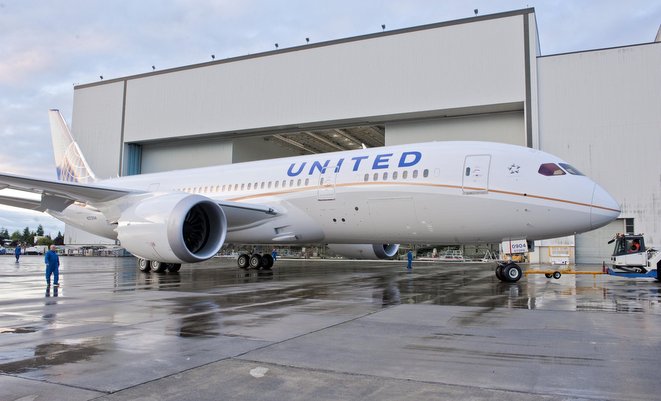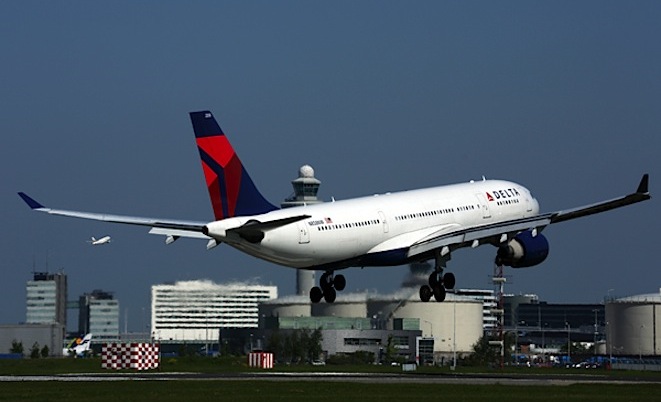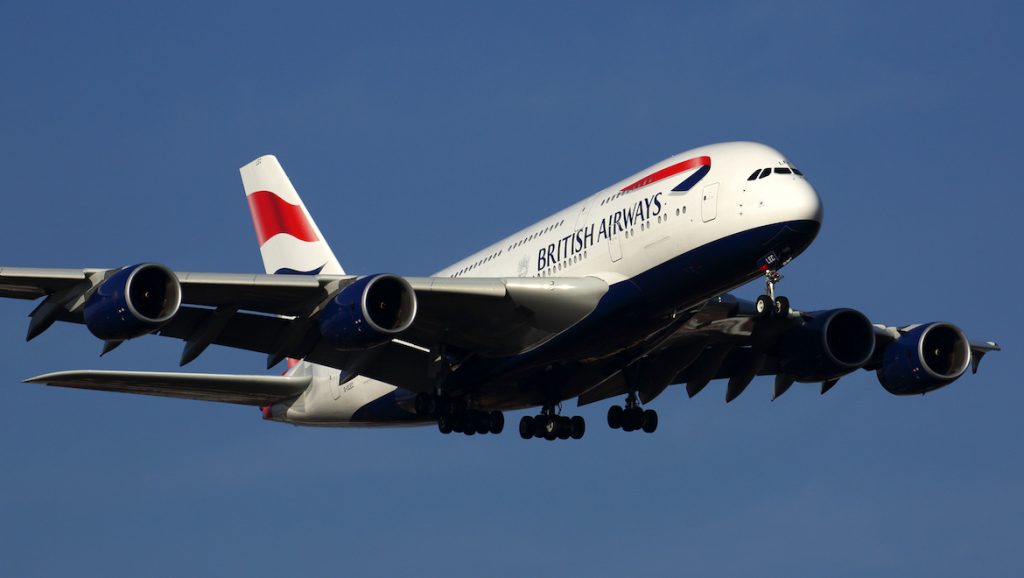United Airlines management and its labour unions are warning of massive layoffs if Washington doesn’t inject billions into the airline industry by the end of this month.
The airline’s chief executive, Oscar Munoz, its president and four union officials said Friday that without federal help this month, “our company will begin to take the necessary steps to reduce our payroll” to match a 60 per cent reduction in flying planned for April.
United had 96,000 employees at the start of the year; proportional layoffs could be close to 58,000 jobs, but airline officials said they don’t envision that many job losses. As an alternative, the airline is considering slashing pay, or a combination of job and pay cuts.

So far, no major US airline has announced layoffs because of the COVID-19 outbreak, although two small regional carriers have said they will shut down next month. The big airlines have cancelled tens of thousands of flights, grounded hundreds of airplanes, and asked employees to take unpaid leave or early retirement. Delta said 13,000 employees have agreed to unpaid leave.
United officials did not explain what they consider sufficient aid, but cash grants appear to be the stumbling block in talks between airline industry representatives and Washington. The US airline industry is lobbying for $29 billion in cash grants and a similar amount in zero-interest loans. The White House and Senate Republicans are offering up to $50 billion in loans but no grants.
Some lawmakers are resisting what they consider a bailout, while others want to impose conditions on airlines – such as new consumer protections opposed by the industry – to any relief. They have indicated that they could accept some limits on grant money, such as using the cash to protect jobs instead of buying back stock or paying executive bonuses.
“Loans alone are not sufficient,” the trade group Airlines for America said in a statement. Criticism of the airline stock buybacks has clearly touched a nerve. Delta Air Lines has spent more than $10 billion buying back its own stock in the last five years, according to data from FactSet. CEO Ed Bastian said on Friday the company has spent more than $20 billion on new planes and other improvements and another $19 billion in profit-sharing and pensions contributions for employees at that time.

United and Delta recently suspended share repurchases. Analysts at Moody’s Investors Service said Friday that large airlines have enough cash and borrowing ability to manage through “a fairly significant short-term disruption” through June — and through September if the outbreak’s impact is more moderate. Smaller airlines and those with less cash will be more vulnerable, the analysts said, “and there is potential for some airlines to collapse within a short period” without more aid from shareholders or governments.
Bastian said the situation facing the airlines is growing direr by the day. He said revenue for the April-through-June quarter will be $10 billion less than a year ago, a decline of 80 per cent. Delta, the world’s biggest airline, is burning through $50 million in cash every day, he said.
Smaller, so-called regional airlines may be hurting even more. Faye Malarkey Black, president of a trade group for those carriers, said on Friday that Senate Republicans’ proposal for $58 billion in loans, of which $8 billion would be earmarked for cargo carriers, “does not help save the regional airline industry or our 70,000 employees”.
Black said regional airlines, which operate flights for bigger carriers under brand names including Delta Connection, American Eagle and United Express, won’t survive without direct financial aid or unsecured loans in which amounts spent to keep workers are forgiven. Two of the regional carriers, Compass Airlines and Trans States Airlines, have said they will shut down in early April.
On the other side of the Atlantic, British airline operators also warned the UK government to enact promised measures to help the aviation industry. EasyJet and Ryanair are set to stop flying after Monday and less than 5 per cent of normal passenger numbers expected at major airports.
Further talks are expected between ministers and the industry on Monday as the government wrestles with how to keep critical infrastructure functioning.
Although work is understood to have continued over the weekend, there is frustration in the industry at the time elapsed without any concrete detail, even after the Chancellor, Rishi Sunak, made a second major intervention in three days on Friday evening.

Karen Dee, chief executive of the Airport Operators Association, said measures to support employers through the pandemic were welcome, but the industry had been holding off taking drastic steps pending promised special state support.
She said, “While government has been receptive, it has not led to clear next steps and airports will now face making extremely difficult decisions.”
The process of laying off hundreds of staff has now started at airports, including Edinburgh. An industry source said that confirmed assistance, such as deferral of some charges, were “peanuts rather than the big bazooka”.
The pilots union BALPA warned that more airline staff would also be made redundant before special measures could be implemented, and accused the government of “still sitting on its hands while airlines are shutting down”.
General secretary Brian Strutton said, “Airlines can’t survive with no revenue coming in and are already cutting wages and jobs. State investment in UK airlines, as other countries are doing, is essential as a matter of urgency before it’s too late.”
It is understood measures being considered by the Treasury include the government taking a direct stake in carriers, but discussions, which have been ongoing since last Tuesday, are not expected to reach a conclusion until at least the middle of this week.
While airports have presented a united front in calls for assistance, government intervention in airlines is more complicated. Although British Airways has warned its staff that its survival is at risk, its owner IAG has distanced itself from calls for state assistance led last week by its smaller rival, Sir Richard Branson’s Virgin Atlantic. IAG’s chief executive Willie Walsh has long argued that the European industry needs to consolidate, even in far rosier economic times.
Potential government aid announced in January to help Flybe, before the coronavirus outbreak pushed the partly Virgin-owned regional airline into bankruptcy, was swiftly challenged by IAG and Ryanair. EasyJet, which was until now the biggest carrier by passenger numbers in the UK, said, “We fully support and welcome the government’s commitment to support airlines during these unprecedented times. Our focus is on measures to help with short-term liquidity and protect jobs, but we can’t comment on the finances of other airlines or what action they might require.”
Although EasyJet has insisted it only seeks a loan on commercial terms, the airline is going ahead with a dividend payout, which will hand around £60 million to its largest shareholder, Stelios Haji-Ioannou, alone. The airline said it was legally obliged to make the payout. The Department for Transport said, “A number of measures to support the aviation sector have already been announced, including Time to Pay, financial support for employees and the Bank of England’s COVID corporate financing facility . The government is working urgently to develop further measures, as necessary.”
The Chancellor’s emergency package of support announced on Friday evening, which contained the extraordinary pledge to pay up to 80 per cent of workers’ salary during the crisis, has also yet to address if and how Britain’s 5.2 million self-employed will be supported.
The British Chambers of Commerce (BCC) said sole traders had felt little reassurance from the measures that helped larger firms. BCC director general Dr Adam Marshall said, “While we understand the complexity involved, there are 5 million self-employed people who need help similar in scale and scope to that put in place for larger firms in recent days.”
Unions also urged the government to ensure its wage support scheme did not omit around 1 million building workers considered to be trapped in “bogus self-employment”.
Unite said the workers are taxed at source and then claim expenses as self-employed workers, under construction industry payroll schemes that largely benefit the actual employers.
Article courtesy of Airlinerwatch.




